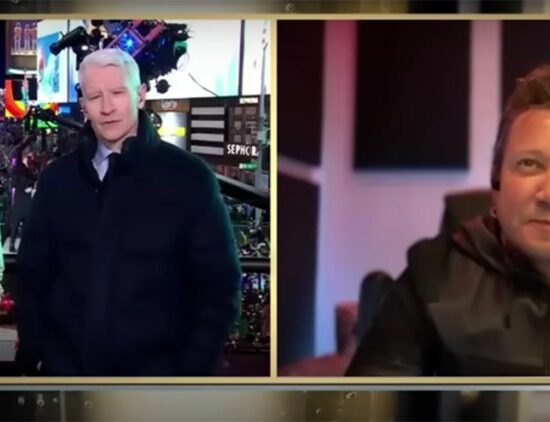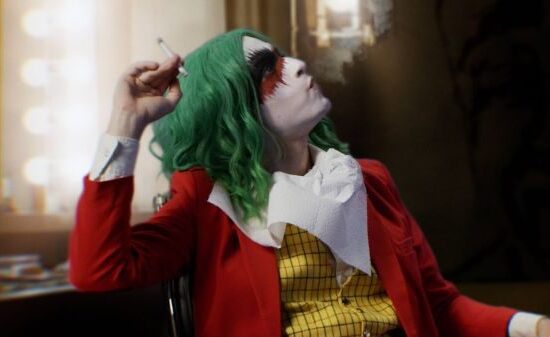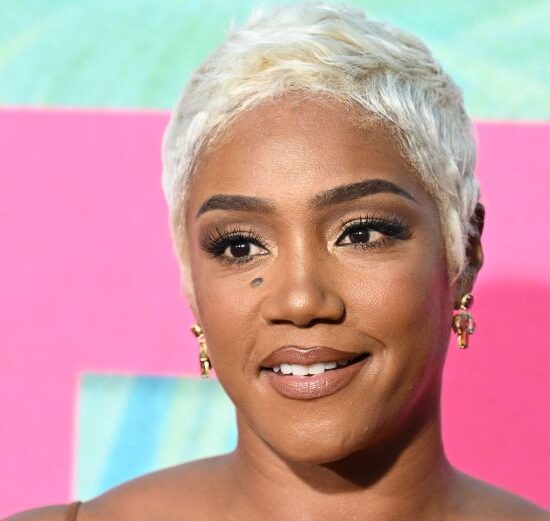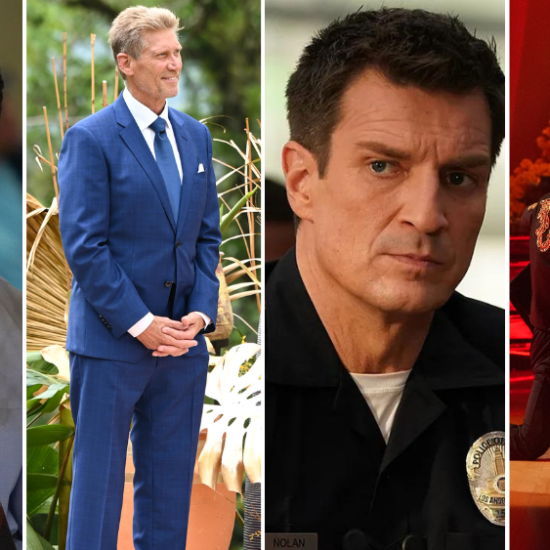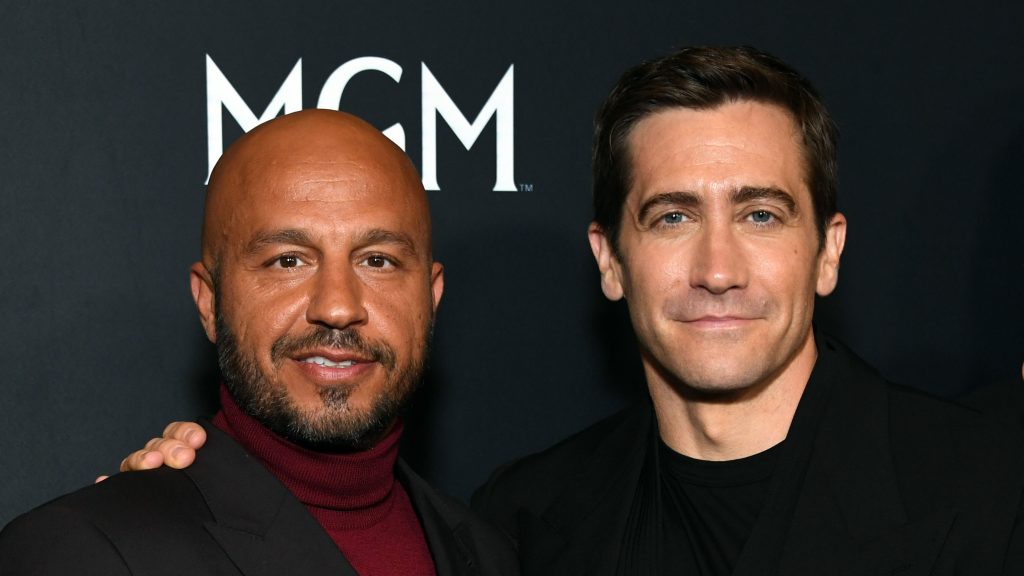
EXCLUSIVE: In Guy Ritchie’s The Covenant, Jake Gyllenhaal throws on the military fatigues he hasn’t worn since 2005’s Jarhead, this time joined by an award-winning actor and real-life veteran in Dar Salim. In the new action movie from Miramax and MGM, Gyllenhaal plays U.S. Army Master Sgt. John Kinley, whose bond with his interpreter, Ahmed (Salim), only grows after their unit is ambushed by the Taliban. After Kinley is injured during the escape, Ahmed embarks on a Herculean effort to carry Kinley across the Afghanistan mountains to safety. When Ahmed is unable to get a visa to get him and his family to the U.S., Kinley risks his life to return to Afghanistan and save him.
The film, which hits theaters Friday, features the edge-of-your seat suspense and impressive action sequences that Ritchie is known for, but it also shows the bond soldiers have with their interpreters and the political mess behind the scenes trying to get them to the U.S. once their tour is over.
Deadline sat down with Gyllenhaal and Salim to discuss the training and research that went into their roles, the blueprint Ritchie presented prior to them signing on, and whether another recent Gyllenhaal co-star has a resume as impressive as Salim’s.
DEADLINE: I think the reason I enjoyed the film so much was it surprised me that it looked nothing like a Guy Ritchie movie that I’ve seen in the past — not that that’s a bad thing, but he has a style and a visual sense. Jake, prior to meeting with Guy on this, what was your anticipation of what this film would be? And what was it that he ultimately sold you on that made you want to do it?
JAKE GYLLENHAAL: Well, I’ve known Guy for a while now and I’ve always felt a connection with him, you know? I mean, he’s obviously his own sort of deeply charismatic personality, but I just always felt he’s a bit of a philosopher in a way, and I love the conversations we had in the past, and so I just thought, “Oh, it’d be really interesting to make a movie with him.” So, he came to me with this and it was like a 50-page script treatment. But he was saying “this is how I intend to shoot it,” which was a different kind of process from what I had ever experienced.
And I think also just that idea was interesting to me, but most of all I think it’s very hard to tell a simple story, you know? I think that actually the difficulty level goes way up when the story is simple, and this is a story that, I think, it got me from the beginning. There were a lot of different stories about the experience of the U.S. and Afghanistan that I had read — some politicized, some not — and this just felt sort of nonpartisan. It felt like a parable. And I knew Guy is going to make great action; it was going to be tense. But I think that, at the heart of it, the idea of one person doing good for another person reluctantly with no sentimentality really got me.
DEADLINE: Dar, I remember tracking this role and there were a lot of people really intrigued and wanted to go after it. I’m curious what made you interested? Because at the end of the day, the middle of film is like your film, with Jake not really in it, and you have to do a lot. What made you chase the role?
DAR SALIM: I mean, just working with Guy Ritchie and Jake Gyllenhaal itself is reason enough to do any film, you know? They had me at hello to be honest. But I also think it’s very rare to see a film where you have two people who are like two men from different cultures in a world where often all the things that divide us are really what the focus is on. And here you have two guys from different cultures caught up in a bad situation, in a war, and at the end of the day you see both want the same thing, and they make the same choices. And as Jake says, it makes it even more interesting that reluctantly they’re kind of stuck on each other.
It would be much easier to tell a story about two American soldiers or two Afghan people, but here you actually take one from each camp and you put them in this situation and you realize that much more unites us than divides us. People just really want to be in a situation where they can take care of their families and give themselves the opportunities that they see others have. And then you have these two guys in a Guy Ritchie universe, because it is still a Guy Ritchie film. It’s different than the ones he’s done, but it is entertaining in the sense that it’s larger than life.
It’s not like a documentary and it doesn’t point fingers or try to teach you anything. It’s really entertaining and it keeps you emotionally engaged from beginning to end. But at the same time you have these two very different people relying on each other, and making those choices, and I thought that was a beautiful thing to show in today’s world.
DEADLINE: I also appreciate the kind of authenticity the film brings, and I’m assuming Guy put you through some training to get ready. I’ll ask you first Dar since you were in the Royal Guard: Does it compare at all to what you went through with that?
GYLLENHAAL: It was a lot of, I made a lot of military movies.
DEADLINE: I’ve got you next, Jake. Oh, I got you.
GYLLENHAAL: I don’t understand, Justin, what are you talking about? I can pretend to fly a plane. Who cares if he knows actually how to fly a plane, it looks like I can fly a plane. What’s the difference?
SALIM: What matters is that he’s knows that’s you’re really good that’s why.
DEADLINE: Yeah, exactly.
GYLLENHAAL: Right, right.
SALIM: I’ve got you, Justin, that’s all right. No, I’d say, you know I’ve done a few military roles myself back home, and I’ve been in the army and so I’ve done other training also after I finished my army. And I have a lot of buddies who are veterans from the Afghan War and Iraq War, so yeah I felt quite comfortable doing that part of the movie.
DEADLINE: Jake, you had just done Ambulance with Michael Bay and obviously he puts people through the ringer as well when it comes to arms training for those films. Was it easier to jump in for this film or was it a different feel? Obviously military and armed robbery are two different things, but just in the way of holding the weapons and dealing with that, was that a help at all?
GYLLENHAAL: You know a lot of my weapons-handling skills I developed when I was preparing for End of Watch, actually. And then in Jarhead, yeah, we went through that too. And then, I’ve had fair training, a lot of training, with live weapons and live fire and then learning the movements and military movements, and it has come from previous projects. So with Michael, sure, and there was a lot of gun-handling there too, but particularly, I think most of all the thin I learned on End of Watch, which has stayed with me through all of the projects since, is gun safety.
Because I think when you’re training like that, when you really feel the danger of it, you behave differently. And so, yeah, all of that. We also had incredible technical advisors. You know, we had Special Ops guys, two of them in particular Dan and Kawa who were with us all the time. And you know obviously tactics change, so the way I held my rifle when I first began was different from five years ago when I learned it. And Kawa re-trained some things and new techniques that they were using, particularly in special operations, and so those things we changed. But generally it did come from a long history with learning from some of the best people in the world on previous projects.
DEADLINE: Did you guys get in touch with past military interpreters, or anybody who had to go through the bureaucracy of trying to get visas for these guys? There is that 10-minute scene which is kind of important to the messaging, about when these guys get back home how hard it is to help out their brothers in arms and get them back there with you.
GYLLENHAAL: Yeah, one of my closest friends is a Marine who fought in Fallujah in a number of different battles in that war and is very active now. He’s now the head of emergency services in New York City and he and his interpreter, who was an enormous part of his history in the military and his experience. And I know he would say, I don’t want to speak for him, but you know brought his two daughters over back to New York to basically help change their life, you know, got them visas and they’re now committed to working for New York City. You know, he actually was a real reason for me and inspiration and why this story means so much.
There’s also all the political stuff that’s much bigger than that, but for me their story, Abud and Zach, the two of them, their friendship, the family that they’ve created, you know, a lot of things came from that story. So, understanding the difficulty of the process, where we are now. …. I mean, since the start of the war I think 300 Afghan interpreters have been killed, you know, by the Taliban. There’s still thousands more there who helped America and the soldiers through this entire war, and that process is very difficult and very complicated, and I know we are still in the midst of it.
There’s also a wonderful documentary about interpreters. I got a hold of the filmmakers of that to just discuss, because they kind of had all these relationships there too. But mostly it came from my personal experience.
DEADLINE: Dar, did you?
SALIM: Yeah, I mean, Denmark is where I’m from, I spoke to several friends of mine who were deployed in Iraq and in Afghanistan as interpreters, and they also introduced me to other people who locally were hired and spent time with them back home. And you know I think all research is done, for me, just by being around people. You can plan so much and you can have some questions, but I think just being around people and realizing their way of thinking and our similarities and what their dreams and aspirations are and how they interact with each other, I think that’s how you learn about people and their backgrounds and their little ticks and tocks and what moves them.
At the same time, you take all that and then you kind of throw it away in a Guy Ritchie film, because I also feel that what makes it great is it is kind of larger than life. So, when you see this film you’re not going to see Ahmed, he’s not going to be your typical interpreter — I mean, the typical interpreter might not take that three weeks’ journey to safety, but in essence they all do that. Because they all do put their lives at stake every day to help the U.S. and their soldiers as do the U.S. soldiers.
GYLLENHAAL: I also think there’s a belief in what is, I think, the fabric of America, which is that we are a country of heroes in a lot of ways, and I think sometimes reluctant ones. And I think people join into these worlds, interpreters come to help in that space, because they believe in that idea as well. And what’s so special about this movie is that it perpetuates that idea, you know? It made me feel like, “Oh, that’s the American I want to be.”
DEADLINE: What I found great about this film is where the viewer is almost waiting for the action. It reminded me of Hurt Locker — the suspense. Like, when Ahmed picks up the Taliban and you’re just wondering how he’s going to go about that. When you guys were going over those scenes with Guy, how did you discuss handling them? The suspense of the film plays almost better than some of those full-on action scenes.
GYLLENHAAL: I agree.
SALIM: Well, I don’t think we did go over them. I mean what works is really, as you say, the script is just like a blueprint, and Guy kind of figures it out on the day. You have to trust. I mean, Guy has a special language he’s developed with his audience over so many years, and that gives him a confidence to play around with the material. And I think a lot of the scenes were [like that], which is great when it works — and it did I feel on this film when you have the right people doing it. They were kind of developed and born on set on the day.
GYLLENHAAL: Yeah, but in that 50-page treatment script there was a real sense of structure, right? Like, what you’re talking about is structure. And you could feel the movement and it was correct and it was packed with tension anyway. And then he wanted people to come fill it in with humanity, and we worked daily on that stuff. But I agree with you, I think it is, it’s the waiting — the movie is so tense. I’ve showed it to a couple of friends and they were like, I needed to pee from 15 minutes in and I didn’t go to the bathroom for the whole time. To me, that is the actual barometer of whether a movie actually keeps your focus. The action sequences are also really emotional, and I have never felt that way. I got really emotional in some of the action scenes.
DEADLINE: Well, the first kind of big firefight, you kind of know things are going to go the wrong way for some of the troop.
GYLLENHAAL: Yeah.
DEADLINE: In the second act when you guys are evading the Taliban, I couldn’t help but feel the drain and strain you were going through. Did you feel that as the shoot was going on, that it was one of the more physically and mentally draining things you have done career-wise?
SALIM: I’m not going to say yes unless you are.
GYLLENHAAL: No, because I feel like he’s from Denmark and nothing strains them, you know what I mean?
SALIM: That’s not true.
GYLLENHAAL: He’s this strong, you know. One of the things about it is there were moments. That first few weeks when we were doing the chase through the mountains, that was full of a lot of pretty intense physicality. And we were shooting in a way that we would just basically, like, we would shoot where we would just do the path, right?
SALIM: Yes.
GYLLENHAAL: We were shooting and then going to one space and then we’d move on, so, that was. But one of the things I think, Guy, it’s his M.O.: Yes you push yourself, but you also have a good amount of fun. I mean, he had his barbecue out near set at all times. And so, you know, whenever we physically exert ourselves too much there would always be something cooking on the barbecue.
DEADLINE: Wait, the barbecue scene where they’re eating. That’s Guy’s?
GYLLENHAAL: No, no, he has an actual barbecue that comes with him [that] he designed. But yeah, it’s an homage to his barbecue, I think, inspired by us.
SALIM: It was such a contrast, like, sometimes you’d run down a mountain and be sweaty and twist your knees and get hurt. And then you’d come down and there’s this beautiful environment where Guy is doing this special…
GYLLENHAAL: Cooking sardines or something, you know?
SALIM: And we get to taste a little bite, you know, yeah.
DEADLINE: Jake, you recently put on social media the photo of the two of you and you’re writing of Dar this renaissance man: Danish Royal Guard, pilot, chess player. After doing back-to-back movies with Dar and Connor McGregor, who’s the biggest badass?
GYLLENHAAL: Well, inevitably with that question I’m going to get my assed kicked either way, so I don’t know how to answer that.
SALIM: Say Connor, otherwise we’re both going to get our asses kicked.
GYLLENHAAL: I will probably say Connor. But in terms of the thing that I learned is in order to be, continue to try and be good at what you do, I think it requires a type of humility that sometimes can get lost. And what I think both Connor, because it was the first movie Connor ever did, and I think with Dar, I think who just has it inherently, they’re just generally very open and generous people. Connor said to me before we began, “I’m a white belt in this and I’m here to learn.” Coming from his skill set and skill level in what he does, I thought that to be such a humble thing to say, and he was just open.
With Dar I felt the same way. It’s like Dar has this sense of — I mean, you can see it in the movie, he’s just got such a good heart, but he’s a badass. But if we had to throw me in a ring with either of them, I would absolutely take Dar any day, like, literally any day, no offense.
SALIM: No offense taken. I would take me.
GYLLENHAAL: I’d take you over Connor too I think that’s smart.
SALIM: And you would beat me as well, actually.
GYLLENHAAL: Yeah, right, right.
DEADLINE: With this film there’s so much going on, but I am curious what your hope is of what audiences will take away from it. Because I do feel it’s much more than your straightforward military thriller — there’s so much context and so many layers to it. Especially when it comes to these interpreters that are so important to our military.
GYLLENHAAL: We should say, first and foremost, this is an action movie. So, I hope they’re really entertained, because that’s a huge part of it.
SALIM: Yeah, exactly, entertained. And an action movie only works, and I think you said that once, if there’s an emotional connection to it. So, you know, I watched it with my son and he was at the edge of his seat from the beginning to the end — it takes a lot for a teenager not to look at his phone, but that worked. So, I mean, if that goal is achieved then I think people can get out and maybe have some feelings, maybe have some thoughts and some realization that, you know, we’re all humans and that we were at a place, which was very difficult, where people’s lives, American lives, were at stake and Afghan lives were at stake, and promises were made. And this is an issue that is still ongoing and hopefully can be resolved.
GYLLENHAAL: I also think it’s a movie about doing good. And I think sometimes movies can portray doing good. You know, we live in such a sort of world of duality there’s so many things that separate us even in movies. It’s like we watch the good guy versus the bad guy. We don’t even have to have a reason for why the bad guy is bad, they just are, and we don’t really even have a full reason for the same thing on the opposite end. Here it’s an action of good and I think it’s a reluctant action of good, which is about just going and doing it.
These guys do it not because they want to, but because they have to, and I think that’s a very different story. And I think that sort of made me look into myself and say, “Oh, wow, we all have it in us to do it.” We don’t have to do it with sentimentality, we don’t have to do it with the fact that we even know how to do it, we just go do it and somehow we can slowly change things as a result. So, that’s what moves me about this movie.
SALIM: Can I just add real quick because, you know, Jake said a lot of things as you mentioned about there’s like this meta layer to this thing where we come from different worlds. You know, where I come from — a small country of 6 million people — and you know I’ve done well there in my work. But Jake is arguably one of the best actors of our generation in Hollywood, so he’s a world star and we come together.
GYLLENHAAL: I like this guy.
SALIM: That’s just plain facts. But you know we meet and on day one there is just this realization, which it didn’t really surprise me, that if you are as good as he is you are a generous actor. You are about the work and you are about the project. And that just made me relax, because I had just found a brother in arms in what we do and that made me able to bring everything I had to this movie even though it’s on a scale that I’m not used to. So, I think that’s part of why this movie works as well.
GYLLENHAAL: I agree with that. We like each other.









